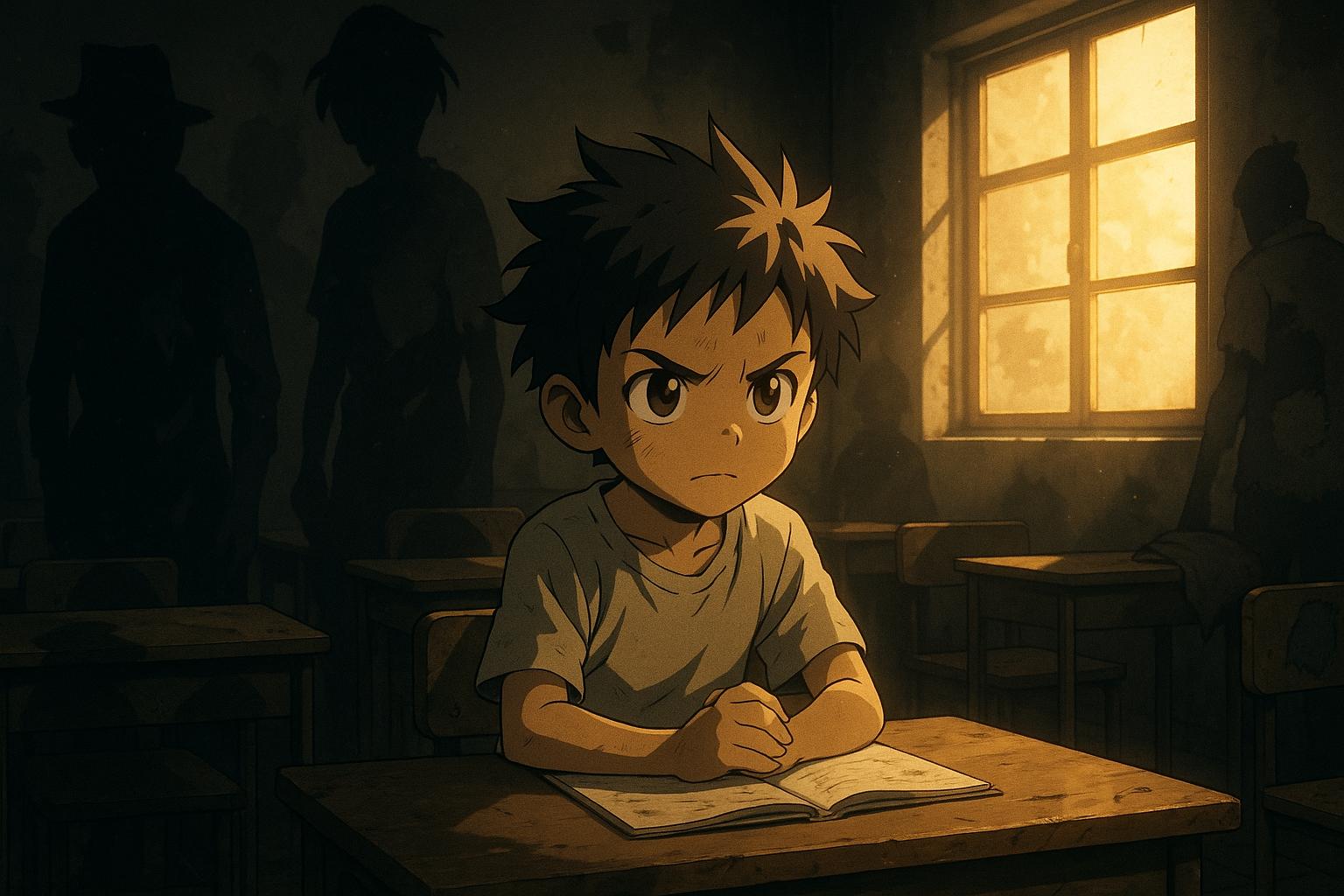In the headteacher’s office of a school nestled in a deprived area of Barrow, Cumbria, Mrs Walker vividly recounted a harrowing morning. She had climbed through a child's window to find a parent incapacitated by addiction, a situation painfully reflective of the struggles that many families face today. Such tales are not anomalies but rather a manifestation of the profound crisis engulfing our education system and the children it serves, particularly when viewed through the lens of child poverty.
Since the pandemic, concerns about what Robert Halfon MP termed the “ghost children” of Britain—those who have become severely absent from school—have burgeoned. Initially alarming figures showed that 93,000 pupils were missing from classrooms, a situation that worsened over time. Today, an astonishing 173,000 students are missing at least half of their schooling, while an additional 1.6 million are absent for at least 10% of the time. A stark reality faces these children: those eligible for free school meals are nearly four times more likely to miss school, an observation likely underestimating the issue as 900,000 children living in poverty do not qualify for these meals.
Educational institutions have become increasingly strained, with many teachers resorting to extraordinary measures to ensure students’ attendance. Initiatives such as community minibus pickups, free breakfasts for parents, and significant material support are commonplace. These actions speak to the stark reality that 1.8 million children—one in four across the UK—are intricately tangled in this attendance crisis. Schools have become food banks, with those situated in areas of deprivation now outnumbering traditional community food banks.
The implications of these absences are dire. Students from low-income families face an alarming likelihood of exclusion—almost six times more likely than their peers. Furthermore, 90% of those who are permanently excluded fail to secure passing grades in essential subjects like English and maths. Poverty doesn't just impact attendance; it dismantles futures. A staggering three-quarters of young people in prison reportedly have faced suspensions during their education. The challenges are exacerbated by a broader context: child poverty rates have increased dramatically in recent years, reaching 25% in 2022-23 and affecting approximately 4.5 million children, the highest rate recorded since such statistics began in 1994.
Amid this turmoil, the moral imperative to act grows ever more urgent. The ongoing cost of living crisis, coupled with policies such as the two-child benefit cap—which, critics argue, disproportionately impacts working families—has led to cries for reform. Charitable groups are amplifying this message, urging the government to not only lift caps on benefits but also to invest in essential services that could alleviate these burdens. The Conservatives’ 14 years in power, characterised by austerity measures, are squarely blamed for exacerbating the circumstances that have led families to struggle under the weight of poverty.
Youth dissatisfaction with the status quo is palpable. Many young people, recognising the systemic barriers before them, are looking for change. Binish Syed Qureshi, a young individual from a working-class background, articulated this frustration, highlighting the difficulties of accessing higher education amidst financial constraints. Such sentiments echo across the UK, where the overwhelming majority of households with young people have struggled to afford basic necessities.
The crisis is not static and is expected to escalate. Projections indicate that child poverty could reach 4.8 million by the end of Labour’s first term if changes are not enacted. The narrative of deprivation continues, locking away opportunities for countless children who could otherwise forge a path to a brighter future.
Education, as I experienced first-hand growing up in poverty, is a crucial means of escaping dire circumstances. One of my former teachers poignantly remarked, “The only way out of poverty for a woman is education,” a lesson that rings true now more than ever. The doors to opportunity, however, seem to be closing for today's youth. The systemic failures that limit access to education and the basic necessities needed for a healthy childhood represent a national scandal, underscoring the urgent need for reform and action. The future of millions of children hangs in the balance, dependent not just on schooling but on a collective commitment to addressing the roots of poverty entrenched in our society.
As we stand on the brink of potential change, it is essential that we recognise the lives and aspirations of the children facing these challenges. Each one deserves a chance not just to survive, but to thrive and contribute to society, untethered from the limitations of their circumstances. In this pivotal moment, we must ensure that their rights to education, security, and a hopeful future remain paramount.
Reference Map
- Paragraphs 1, 2, 3, 4, 5, 6.
- Paragraphs 2, 4, 5.
- Paragraphs 4, 5, 6.
- Paragraphs 5, 6.
- Paragraph 1.
- Paragraph 2, 5.
- Paragraphs 1, 5.
Source: Noah Wire Services
